Setting the Foundation for Lifelong Dental Health
Regular dental check-ups play a critical role in establishing and maintaining children's oral health from infancy through adolescence. Early and consistent dental care not only helps prevent common diseases such as tooth decay and gum disease but also supports overall wellbeing by enabling proper speech development, nutrition, and self-esteem. This article explores the key reasons why regular dental visits are essential for children, highlights preventive practices, and emphasizes the impact of early intervention on lifelong oral health.
Early Childhood Dental Visits: Starting Oral Care Right from the First Tooth
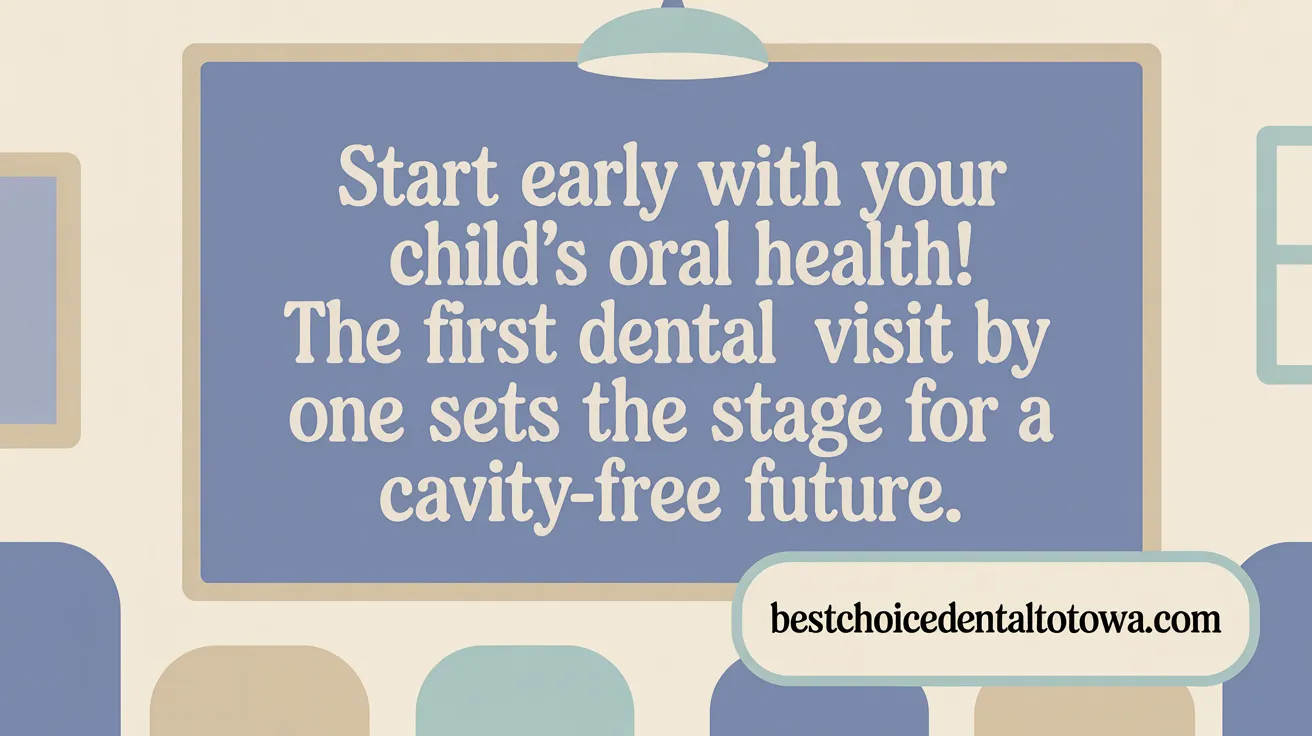
When should a child have their first dental check-up?
Children should have their first dental visit by age one or within six months of the eruption of their first tooth, as recommended by the American Dental Association (ADA), American Academy of Pediatric Dentistry (AAPD), and American Academy of Pediatrics (AAP). This early visit establishes a dental home for the child and provides an opportunity for the dentist to assess oral health from the start.
Why are early dental visits important?
Early dental visits are crucial for preventing cavities and tooth decay, which are the most common chronic diseases affecting children. These visits enable dentists to identify and manage early childhood caries early on, avoiding pain, infection, and other health problems. Moreover, they equip parents with essential education on proper oral hygiene techniques, infant feeding practices like avoiding bottle use during bedtime, and transitioning to cup drinking. Early exposure to dental care also helps reduce children's anxiety and fosters positive attitudes towards future dental visits.
How do early dental visits help prevent early childhood caries?
The dentist may apply fluoride varnish and recommend preventive measures such as limiting sugary snacks and drinks. Early intervention helps maintain cavity-free teeth and avoids complex dental treatments later. Preventive strategies also include advising parents on minimizing nighttime bottle feeding with milk or juice and promoting good oral hygiene habits.
What role do parents and caregivers play in maintaining oral hygiene?
Parents and caregivers are vital in establishing early oral health habits by cleaning infants' gums before teeth erupt, assisting with brushing once teeth appear using a small amount of fluoride toothpaste, and supervising brushing until children develop effective skills. They are also encouraged to schedule regular dental visits every six months to monitor dental development.
Maintaining early and regular dental visits forms the foundation for lifelong oral health, reducing dental disease and promoting overall well-being for children.
Preventive Dental Care: Shielding Children from Cavities and Decay
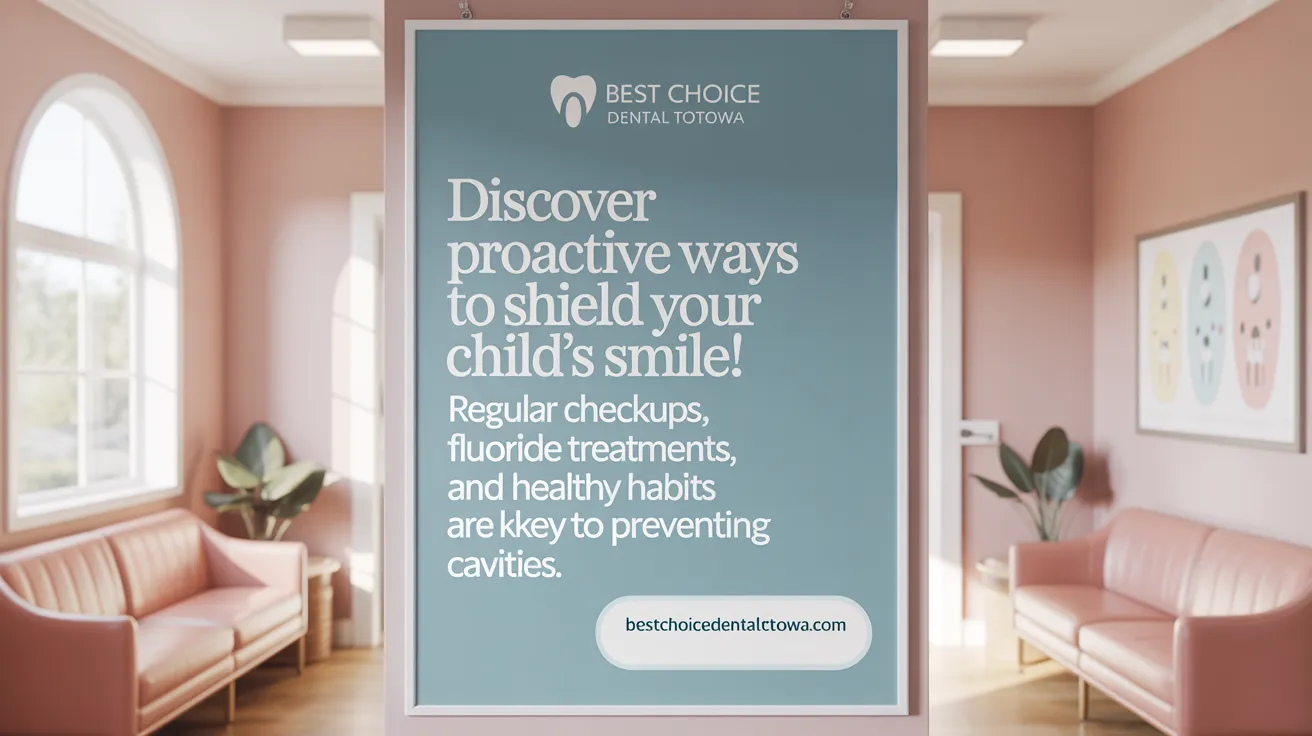
What are the main dental health problems that affect children?
Tooth decay, also known as dental caries, is the most prevalent chronic disease in childhood. More than 40% of children have experienced cavities by the time they reach kindergarten. Untreated tooth decay can lead to significant discomfort, infection, and difficulties with eating, speaking, and school performance (Tooth decay in children, Cavities common in children).
How can cavities and other dental issues be prevented?
Effective prevention involves a combination of professional care and home practices:
- Regular Dental Check-Ups: Biannual visits to the dentist allow for early detection and treatment of dental problems, minimizing more serious complications (Regular dental visits, Importance of regular dental visits).
- Fluoride Treatments: Fluoride varnish applications, typically every three to six months, strengthen enamel and prevent the development and progression of cavities (Fluoride Varnish Benefits, Fluoride use in pediatric dentistry).
- Dental Sealants: Applying sealants on the chewing surfaces of back teeth can prevent up to 80% of cavities in those areas by blocking food and bacteria (Dental sealants for children, Dental sealants as preventive measures.
- Home Oral Hygiene: Daily brushing with fluoride toothpaste (starting with a small smear from the first tooth) and flossing as teeth develop are essential (Early childhood oral hygiene education, Brushing with fluoride toothpaste).
- Dietary Choices: Limiting sugary snacks and drinks, avoiding bedtime bottles with milk or juice, and encouraging water consumption promotes healthier teeth (Avoiding bedtime bottles, Preventive dental practices for children).
Role of professional cleanings
Professional dental cleanings remove plaque and tartar that home brushing cannot reach. These cleanings help prevent gum disease and tooth decay by eliminating harmful bacteria buildup. Cleanings are usually combined with examinations to monitor oral health and maintain a cavity-free smile (Professional dental cleaning, Benefits of professional dental cleanings).
By integrating these preventive approaches into children's daily lives and regular dental visits, families can dramatically reduce the risk of cavities and ensure sustained oral health (Importance of early dental intervention, Regular dental check-ups for children.
The Role of Regular Check-Ups in Early Detection and Management
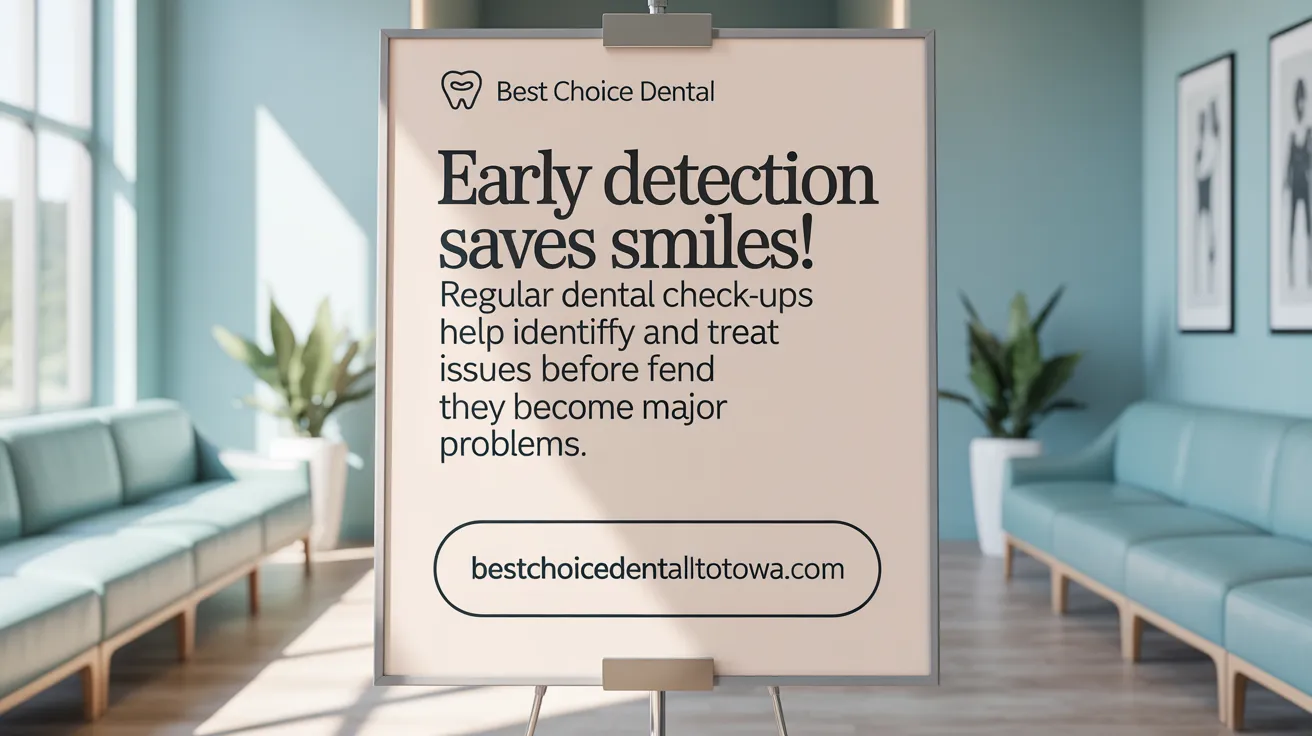
Why are regular dental check-ups important for children?
Regular dental visits play an essential role in detecting a wide array of oral health issues early. These include cavities, gum disease, developmental abnormalities, and misalignment problems. Early diagnosis is crucial as it allows for timely interventions that are often less invasive and more effective. This proactive approach helps to minimize the need for expensive or extensive dental treatments in the future, thus benefiting both the child's health and the family's finances. For more details, see Importance of regular dental checkups for kids.
What happens during routine dental check-ups?
During a routine dental examination, the dentist will thoroughly examine the teeth, gums, and all oral tissues. Professional cleaning is conducted to remove plaque and tartar buildup, which are leading contributors to tooth decay and gum disease. The dentist may apply fluoride treatments to strengthen the teeth and help prevent cavities. Depending on the child's specific needs, X-rays might be taken to detect issues not visible during the physical exam. Additionally, the dentist will provide oral hygiene education customized for the child, empowering both parents and children with knowledge to maintain good dental health at home. Learn more at Dental checkups importance and preventive care.
How does early detection benefit dental treatment?
Identifying oral health problems early provides more treatment options that are less invasive. For example, early-stage cavities can be managed with fluoride varnish and dietary changes rather than fillings or extractions. Early intervention also helps prevent complications that may affect eating, speaking, and overall health. See Early childhood dental visits and prevention.
Why is continuous dental monitoring valuable?
Ongoing dental check-ups enable the dentist to monitor the child's oral health over time, tracking tooth eruption and jaw development. This continuous care helps catch changes promptly, allowing adjustments in treatment plans and reinforcing healthy habits. Regular monitoring can also reduce dental anxiety by familiarizing children with dental visits, making them more comfortable and cooperative in the long run. For further reading, visit Monitoring dental growth and oral health.
Building Positive Experiences and Lifelong Healthy Habits
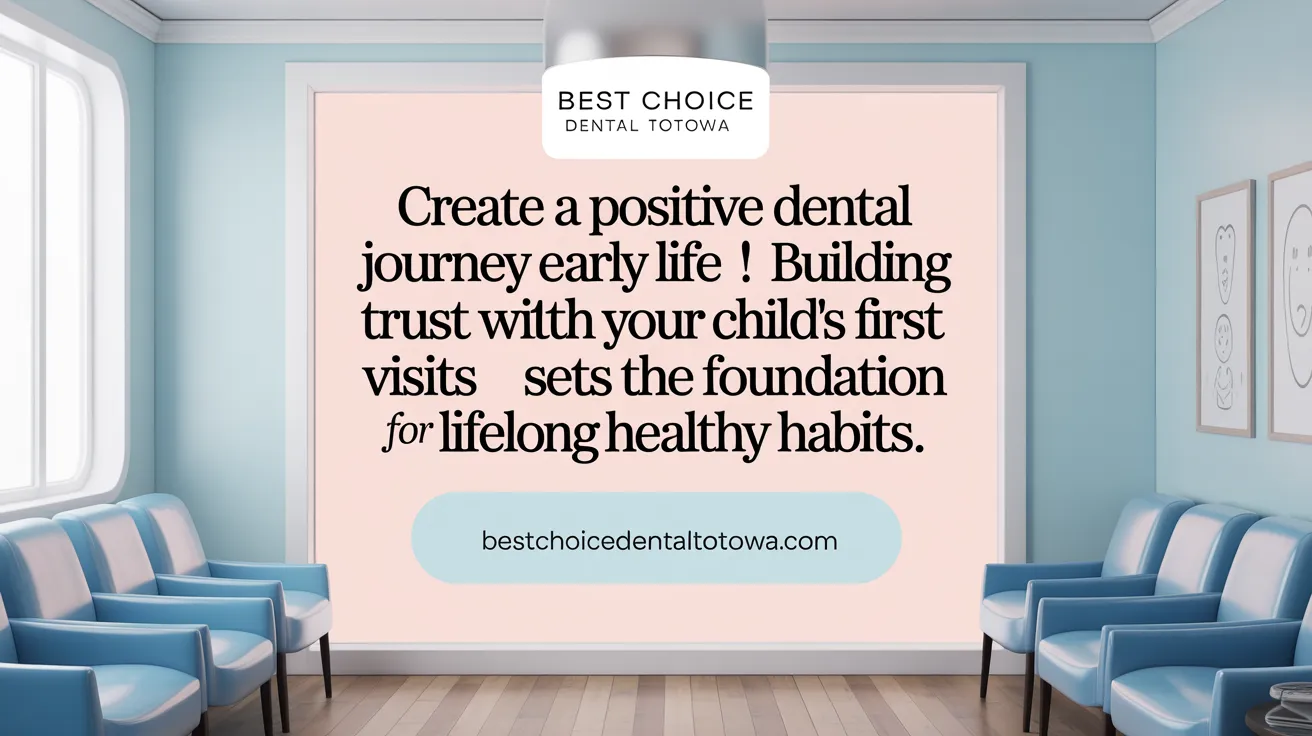
How do regular dental visits affect children's attitudes towards dental care?
Regular dental visits help children become familiar with dental procedures and environments, which significantly reduces their fear and anxiety about dental care. When visits are positive and child-friendly, children build trust with their dental care providers. This positive foundation encourages them to maintain good oral health practices throughout life, developing confidence and a proactive attitude towards dental care. For more information, see Importance of Regular Dental Checkups and Benefits of Regular Dental Visits for Children.
What is the importance of establishing a dental home for children?
A dental home is crucial as it provides continuous and comprehensive oral health care starting by age one or within six months of the first tooth eruption. It ensures regular monitoring of dental development, preventive treatments, and timely management of any issues. Establishing this early relationship strengthens communication between families and dental professionals, supporting tailored care that adapts as the child grows. See American Academy of Pediatric Dentistry Guidelines and Early Dental Care and the Dental Home for details.
Educational Role of Dental Visits
Dental visits are an essential opportunity to educate both children and their parents on proper brushing, flossing, diet, and habits that impact oral health. Early instruction helps prevent cavities and tooth decay by promoting effective hygiene techniques and healthy lifestyle choices. Resources such as Oral Health Tips for Children and Early Childhood Dental Visits provide valuable guidance.
Long-Term Benefits of Routine Care
Routine dental checkups positively influence long-term oral health by preventing complex dental problems, reducing the need for costly treatments, and fostering habits that contribute to overall wellness. Evidence shows that continuous care from childhood is associated with better oral health outcomes into adulthood. See Routine dental attendance and adult oral health and Preventing Cavities in Children for more information.
By creating welcoming, positive dental experiences and establishing a dental home early on, children are empowered to maintain healthy habits that protect their smiles for life. For more comprehensive insights, visit National Institute of Dental and Craniofacial Research on Pediatric Oral Health and American Academy of Pediatrics Oral Health.
Addressing Disparities and Supporting Underserved Populations
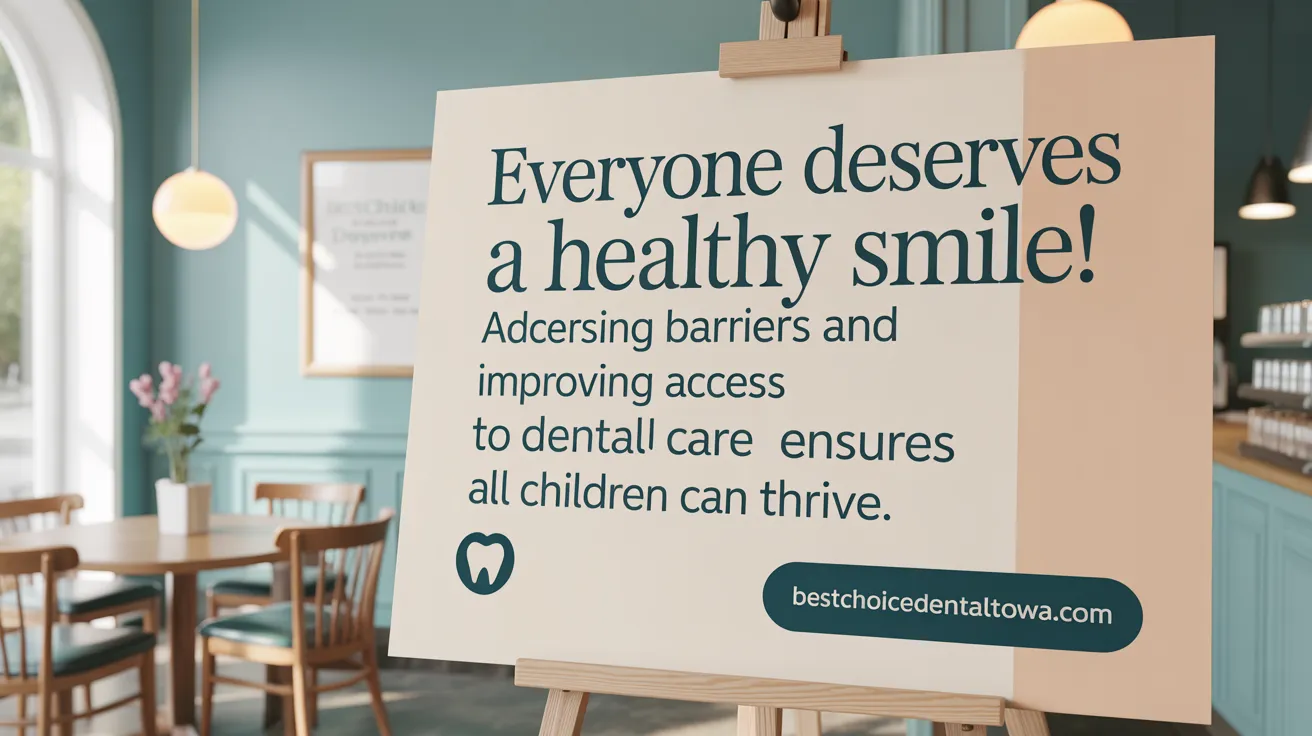
Are there disparities in children's access to dental care?
Yes, significant disparities exist in children's access to dental care. Children from lower-income households and minority groups, such as Hispanic and non-Hispanic Black populations, experience higher rates of untreated dental decay. They are also less likely to have regular dental visits compared to children from higher-income families. This inequality highlights a critical public health challenge that affects children's overall well-being (Dental visits in children, Dental Visits Increase Support Pediatric Providers).
How can access to dental care for underserved children be improved?
Improving access requires a multifaceted approach. Training primary care pediatric clinicians to perform quick oral health screenings during well-child visits has proven effective. These providers can educate parents, identify early signs of decay, and make timely referrals to dental professionals. Studies have shown that such interventions can increase dental visits from 43% to 52% among underserved children (Dental Visits Increase Support Pediatric Providers.
Integrating oral health into primary medical care fosters early detection and prevention, reducing barriers to care. This approach also promotes collaboration between medical and dental providers, which can lead to comprehensive health management and better outcomes for children (Importance of Regular Dental Checkups, Perinatal and infant oral health care).
Role of medical providers in oral health
Medical providers play a vital role by incorporating oral health assessments into routine checkups. They can apply fluoride varnish, advise on proper hygiene, and support caregivers with anticipatory guidance. Their involvement helps identify risks early and connects families to dental homes, ensuring continuous care (Oral health, Guidelines for Pediatric Health Care Providers).
Importance of integrating oral health with overall health care
Oral health is closely linked to overall health, impacting nutrition, speech development, and quality of life. Integrating oral health within broader healthcare ensures children receive holistic care. This integration also addresses systemic disparities, making preventive dental services more accessible, especially for vulnerable populations (Importance of Regular Dental Checkups, Dental Visits Increase Support Pediatric Providers, Oral Health Tips for Children).
This comprehensive approach can improve oral health equity and support lifelong dental wellness for all children.
Long-Term Impact: Protecting Children's Health through Regular Dental Care
Regular dental check-ups serve as a cornerstone for preventing and managing dental diseases in children, which remain among the most common chronic childhood conditions. Early and consistent dental care not only helps protect children's teeth from cavities and gum disease but also supports their overall development, nutrition, and confidence. Preventive treatments such as fluoride varnish and dental sealants, combined with proper home oral hygiene and diet, dramatically reduce the risk of decay. Importantly, regular dental visits build positive attitudes toward oral healthcare, fostering habits that last a lifetime. Addressing disparities in access through integrated medical-dental approaches ensures that all children can benefit from these preventive services. Establishing a dental home by the first birthday and maintaining routine visits empower families and healthcare providers to work together for children's optimal oral and general health.
